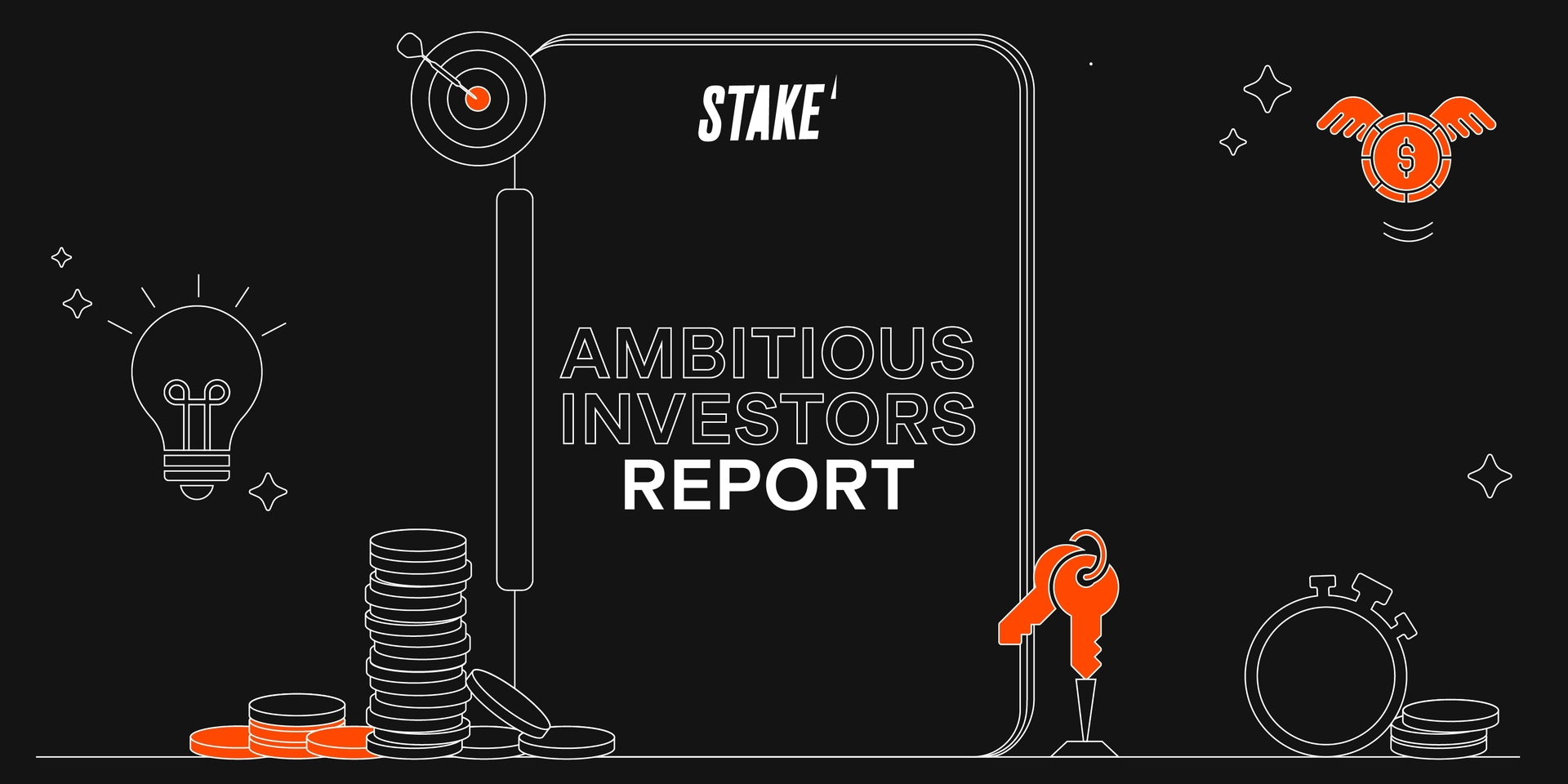Life Milestones Harder To Reach as Wage Growth Proves Unreliable — Stake Research
New report from Stake reveals Australian investors are turning to the markets as getting married and starting a family become a financial luxury

SYDNEY, AUSTRALIA, 2 August 2023 — New research from online investment platform, Stake, reveals Australians are increasingly harnessing investments to protect against higher living costs and slow real wage growth.
The 2023 Stake Ambitious Investors Report, which includes 1,500 non-retired investors across age groups, finds 59 per cent are confident about their financial future. But more than six in ten (62 per cent) are unconvinced their salaries will keep pace with the cost of living over their working lives, and 56 per cent say ‘wages not keeping up with inflation’ is causing financial strain.
Matt Leibowitz, CEO and Founder of Stake comments: “The pandemic may have been the catalyst for more Australians engaging with the markets, but it’s now clear that this was the start of a long-term shift. Given the high barriers to entry in the property market, and financial stability being less certain, ambitious Australians increasingly see investing as a way to protect their future."
More than half (54 per cent) say starting a family is becoming a financial luxury, and almost a quarter (23 per cent) are delaying or forgoing buying a home due to financial reasons. This is even higher for younger investors, with 53 per cent of 18 to 24-year olds, and 38 per cent of 25-34 year olds significantly delaying or forgoing their home purchases.
Investors Focused on the Long Term Despite Cost of Living Pressures
Investment goals are heavily focused on financial independence, with the most common being retiring and living off investments (55 per cent), supplementing income (49 per cent), funding travel experiences (34 per cent), cutting down on working hours (30 per cent), and home ownership (21 per cent). Despite the bear market, 67 per cent of investors have not sold any investments over the past 12 months and less than one per cent have sold all investments over the past year.
While 61 per cent have been forced to cut back outgoings over the past six months, these investors have overwhelmingly focused on discretionary spending cuts such as takeaways (68 per cent), cafes and restaurants (65 per cent), travel (57 per cent), and clothing (56 per cent).
39 per cent have cut down on their allocation to savings and investments, but many of the barriers to investing are short term. The top three barriers are increasing living costs (51 per cent), worries about the short-term state of the market (24 per cent) and a short or medium-term goal like buying a home (15 per cent).
Leibowitz continued, “Since Stake launched in 2017, we've seen the financial markets increasingly embraced by Australians as they look for opportunities to grow their wealth. Despite cost of living increases, investors are still engaging with the markets as they stay focused on long term goals."
The research also finds that:
Australian investors have a grounded definition of financial success: ‘being debt free’ is the leading definition of financial success (87 per cent), followed by ‘owning my own home’ (83 per cent) and ‘having the capacity to support a family’ (75 per cent). Traditional status symbols are less important, with just 13 per cent citing ‘having an expensive car’ and just over a fifth (21 per cent) citing an ‘impressive home’.
Family and friends have the biggest impact on investing knowledge: The biggest impact on investors’ knowledge is through the people closest to them — namely, friends and family (62 per cent). Just eight per cent of investors said school had an influence on their knowledge of investing.
Investors are overwhelmingly focused on the long term: Around half (48 per cent) expect to hold their investments for over ten years on average, and 29 per cent expect a timeframe of 6-10 years. Just 5 per cent of investors surveyed consider themselves to be short-term traders.
Young investors and women most impacted by increased living costs: 71 per cent of 18-24 year olds have been forced to cut back on their spending over the past six months, making them the most impacted by the cost of living crisis. This could be partly due to the recent surge in HECS debt, with 62 per cent saying student debt is causing at least some financial strain. Over two thirds (69 per cent) of women have been forced to cut back on outgoings compared to just over half (54 per cent) of men.
Australian stocks the most popular asset class but new investors prefer ETFs: Over the past six months investors primarily bought Australian stocks (42 per cent) and this was followed by index funds (33 per cent). For those with less than five years of experience, ETFs were the most popular type of investment, but individual stocks were more popular for those with greater experience.
Top 5 Most Bought U.S. Stocks Last Financial Year
Tesla (TSLA)
Apple (AAPL)
Alphabet (GOOGL)
ProShares UltraPro QQQ (TQQQ)
Amazon (AMZN)
Top 5 Most Bought ASX Stocks Last Financial Year
Vanguard Australian Shares Index (VAS)
Pilbara Minerals (PLS)
Core Lithium (CXO)
BHP (BHP)
Vanguard Msci Index International Shares Etf (VGS)
ENDS
About the Research
The Stake Ambitious Investors report was conducted in partnership with Pureprofile from 22-26 May 2023. It featured 1,510 investors in Australia that do not consider themselves retired.
About Stake
Stake was founded in Australia in 2017 with a mission to break barriers for ambitious investors. Since its launch, Stake has attracted over 500,000 customers by providing seamless access to the U.S. markets, $3 CHESS sponsored ASX trades, and Stake Super — an intuitive, hassle free SMSF platform. Stake completed a $90 million Series A funding round in May 2022 and is backed by major investors including Tiger Global and DST Global.